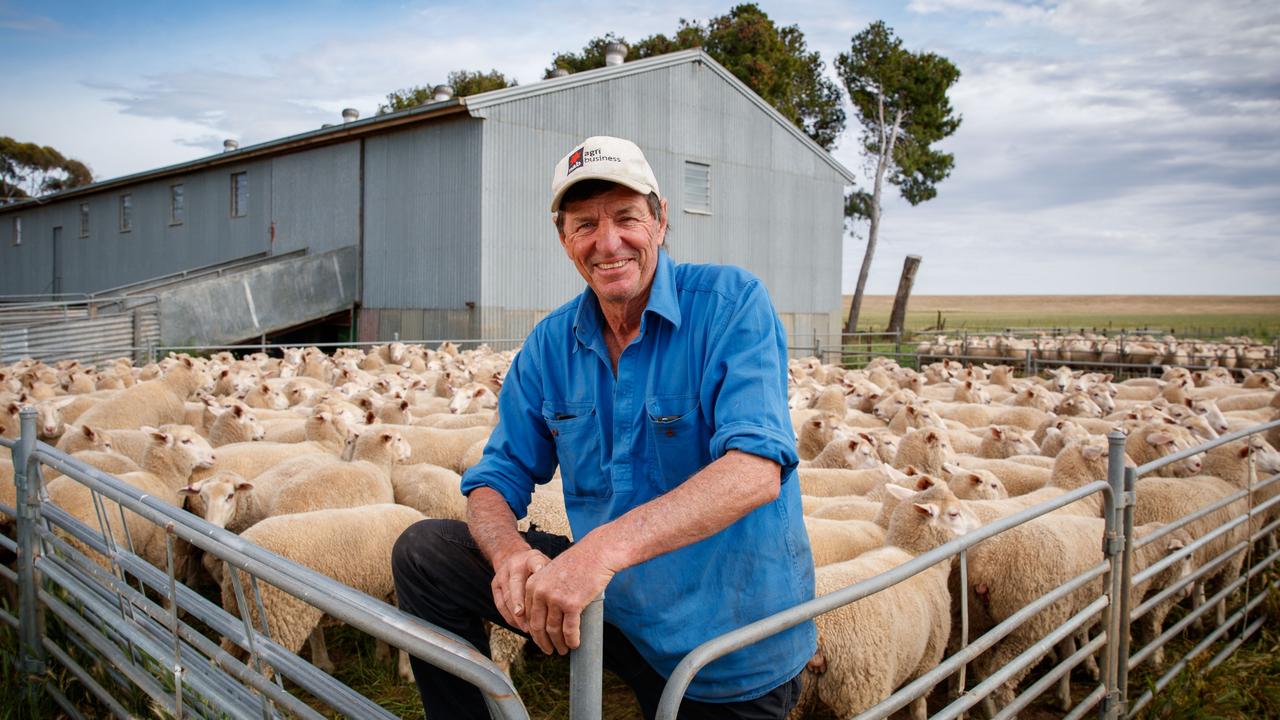Make way for girls to take over, says Nuffield scholar Katrina Sasse
This West Australian farmer says a paradigm shift in the way people think and make decisions about succession is needed.
A PARADIGM shift in the way people think and make decisions about succession is needed to include more daughters wanting to take over family farms, West Australian Katrina Sasse says.
Katrina, a former agribusiness banker who runs a 8210ha cereal and oilseed business at Morawa in remote Western Australia, said while Australian agriculture was making strides when it came to gender balance, a greater focus on shifting the traditional patterns of succession and the way rural communities perceived daughter successors was necessary.
One of three daughters, Katrina manages her family business which grows 6500ha of winter wheat, canola and lupins 350km north of Perth near Geraldton. She recently completed a Nuffield scholarship on empowering daughters in farm succession. Her research took her to the US, Canada, Netherlands, Germany and Denmark where she conducted more than 50 interviews with farmers’ daughters, agribusiness consultants, academics, and private and public-sector managers in the agricultural industry.
Katrina said her passion for the issue stemmed from her time, “as a daughter returning to the farm”, trawling through “website after website looking for something that would help me understand the opportunities of farm succession”.
She said frustratingly, she found most resources on succession were not tailored for daughters and were tailored more for sons and their partners taking over the farm.
“Daughters are often labelled as the ‘off-farm’ sibling, and even worse, some websites even go as far as making derogatory statements such as ‘the unhappy off-farm daughter’,” Katrina said in her scholarship report released last week.
“I knew I needed to find role models and that structural issues in the industry need to be addressed in order to encourage daughters to choose farming. I still feel very passionately when I see or hear something about succession that is gender biased. We are in 2020 and giving equal opportunity for women to farm is common sense.”
BUILDING CAPACITY
KATRINA said while initiatives for women were growing in popularity, none focused on building the capacity for farm daughters to become farmers. Despite demand for food rising, and agriculture technology advancing rapidly, she said many family farms would cease to exist in the coming decades “unless farm children, particularly daughters, become more engaged with farming”.
“Daughters are keen to gain farming skills and knowledge and they want to learn how to farm, but while daughters may study agriculture and go on to work in the industry, daughters are generally not returning to become farm successors,” she said.
Katrina said her research should provide support for parents wanting to give their daughters equal access to opportunity to farm as well as mentor their daughters about what pathway they might take before returning home.
“This includes ideas such as daughters needing to feel involved in the farm at a young age and having the same access to experiential learning activities as sons,” she said.
“Confidence is instilled from a young age from parents, and compared with sons, daughters have not typically been granted the confidence, or had the upbringing and socialisation to become successors.
“The daughters that had an equal upbringing in terms of experiential learning activities were strong-minded, fiscally independent and successful in being leaders in their community and on their farm today. These outcomes suggest that farm parents must be actively managing succession in their family from birth to adulthood, and must be versed on how to engage daughters.
“Daughter successors are engaged with tangible opportunities such as sharing the reward and financial responsibility of the farm, purchasing shares in the business, being distributed dividends based on yield or improving performance or gaining a profit share by owning inputs, producing outputs.
“For parents, giving equal chance to both sons and daughters to learn the farm knowledge is critical.”
POLICY POWER
KATRINA also recommended that gender bias in farm success become a policy for various groups in Australia that were already focusing on empowering women in agriculture.
She said the National Rural Women’s Coalition should tackle the issue of women’s access to land and resources in their policy discussions with government and discuss how to tackle challenges “to allow more women to be handed down the family farm.
“While this study speaks to the widespread exclusion of farm daughters from family farm succession in the past and how patriarchy, gender role stereotypes and tradition are pushing daughters away from being socialised as farmers, it is clear that times are changing,” she said.
“It is recommended that farmers, succession planners, consultants and advisers foster an environment that is inclusive of both sons and daughters, avoid the typical ‘son and daughter-in-law taking over the farm’ scenarios in their language, and remove resources and materials which reinforce old patterns of patrilineal succession and gender role stereotypes.”
Katrina said from a succession perspective, daughters needed to be proactive with early planning and management of the succession process critically important; talk to other women about running a farm or find a mentor who would be able to share their journey and make a final decision with gut instinct.
She said they should also “call out sexism and unconscious bias”. “The more women raising awareness about the issue the easier it will be for the next generation,” Katrina said.
MORE



